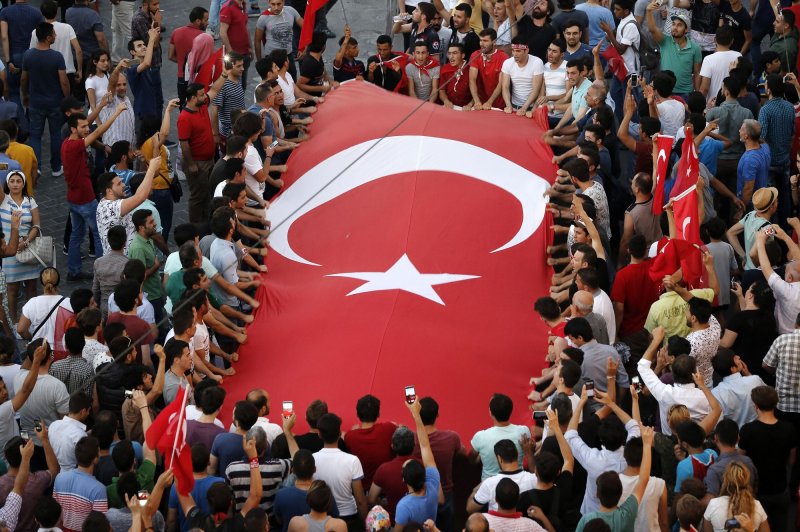Members of the European government said they're waiting for international observers to assess irregularities in a national referendum in Turkey, a potential energy partner. Photo by CemTurkel/UPI |
License Photo
April 17 (UPI) -- European leaders called on authorities in Turkey, a potential energy partner, to seek unity after a weekend referendum consolidated power around the president.
Turkish President Tayyip Erdogan barely won the plurality in a national referendum he said was a response to an attempted coup last year.
"The fact that the outcome of the referendum is 'yes' shows that our people accept the presidential system of government," he said in a statement. "For first time in the history of the republic, we have changed our governmental system through civilian politics, which is of paramount importance."
The country's geographical position as a bridge between Central Asia, the Middle East and Europe is indicative of its diplomatic fluidity and Turkish political evolution has unsettled the European community in the past.
The lack of a resounding vote in favor of Erdogan brought a statement of concern from leaders in the European Union, who said they were waiting for international observers to respond to alleged irregularities.
"In view of the close referendum result and the far-reaching implications of the constitutional amendments, we also call on the Turkish authorities to seek the broadest possible national consensus in their implementation," a statement signed by European Commission President Jean-Claude Juncker and others read.
The European community sees Turkey as a potential partner in efforts to break the Russian grip on the regional energy sector. A series of pipelines dubbed the Southern Corridor are planned for delivery of natural gas from the Shah Deniz reserve basin in the Azeri waters of the Caspian Sea through Turkey.
After the coup last year, Erdogan received a letter of condolence from Russian President Putin. Russia has pushed its own energy initiatives through Turkey, lobbying for support for a pipeline called Turkish Stream, a scaled-back version of the broader Southern Stream gas project to the European market.
In March, Russia and Turkey signed a series of trade and economic agreements aimed at broadening the bilateral level of cooperation.
Erdogan vowed revenge after the July coup left 290 people dead. At least 6,000 people, including more than a dozen of the country's top military generals, were arrested in connection with the putsch.















